
 Flash News
Flash News
International drug search: 36-year-old arrested in Durrës (NAME)
Veliaj's appeal to be heard today in the High Court
Today's hearing at the Fier Court, Salianji requests conditional release
Taxi collides with truck on Lezhë-Shkodër axis, driver taken to Trauma in serious condition
At least 91 dead in Texas floods
Analysis: Why does no one in the EU remember Kosovo's application?

Since Kosovo has applied for membership in the European Union, on December 15, 2022, the Presidency of the Council of the EU has been divided between five member states: the Czech Republic, Sweden, Spain, Belgium and Hungary. The first one accepted the application, but none of the others reviewed it.
The Hungarian presidency - with a mandate until the end of this year - has not responded to Radio Free Europe's question whether it will take any steps. The Government of Kosovo hopes so.
"The EU's opinion and receiving the questionnaire are necessary steps that must be taken. We have worked closely with the presidencies of the EU Council throughout this period and we hope that the current Hungarian one will treat our request for application with the seriousness it deserves", Klisman Kadiu, political advisor to the Government of Kosovo, tells Radio Free Europe.
By regulation, the task of reviewing a country's application for membership in the EU rests with the presidency of the EU Council, which rotates between member countries every six months.
The Council, namely the representatives of the 28 member states decide when the application is sent to the European Commission, which is invited to prepare an opinion on the merits of the applicant country.
Through a questionnaire, then, the Commission assesses the readiness of the applicant country to move forward in the membership process, namely to obtain the status of a candidate country and to open membership negotiations.
Ten countries are currently in the process of enlargement - six from the Western Balkans, plus Ukraine, Moldova, Georgia and Turkey. With the exception of Kosovo, all of them are candidate countries, and some are also in negotiations for membership.
Augustin Palokaj, a journalist who has been following European politics for years, says for the Expose program of Radio Free Europe that there are two reasons why Kosovo's application for EU membership has been shelved for almost two years.
"The first is the formal reason, or the fact that Kosovo has not been recognized by five EU member states [Greece, Spain, Slovakia, Romania and Cyprus], while the enlargement process is between the member states and the applying country - it is not a process with EU institutions. Therefore, in order to advance further, the agreement of all member countries is needed or, at least, no member country opposes it".
"The second is the lack of political will on the part of the EU, as some countries want to connect this with the dialogue process between Kosovo and Serbia", says Palokaj.
Kosovo and Serbia have been in dialogue for the normalization of relations for more than a decade. The EU, as a mediator, has emphasized the importance of the results in this process, as a prerequisite for their progress on the European path.
But, despite this, relations remain tense and many of the agreements reached are not implemented.
The political leaders, Albin Kurti of Kosovo and Aleksandar Vučić of Serbia, have not met for exactly a year. Kurt's government, meanwhile, has taken some actions - such as removing the Serbian dinar from use or closing Serbian parallel institutions - which the European Union has considered as one-sided and with a negative impact.
Kosovo, for more than a year, is also subject to some punitive measures from the EU, which are related to the tensions in the northern part of the country, inhabited by a majority of Serbs.
Kosovo has not even responded to the continuous demands of some EU member states to take steps towards the formation of the Association of municipalities with a Serbian majority. Instead, the Government accuses Serbia of unconstructive approach and the EU of unequal treatment - although the latter disagrees.
"Regarding the 'unilateral steps' and criticisms of the EU, seen in the context of integration towards the European Union, they should be evaluated positively and as steps to promote the functioning and rule of law in the country, as well as the fight against illegal activities and criminal gangs. So, they should not influence the prolongation of the European process", says the Government adviser, Kadiu.
Tefta Kelmendi, from the European Council for Foreign Relations, assesses for Expose that Kosovo's European prospects, for now, are gloomy. According to her, the EU must first find a way to continue mediating the dialogue between Kosovo and Serbia and restore the confidence of the Government of Kosovo.
"There is a perception [in Kosovo] of one-sidedness and unequal treatment by the EU. This can be thought so due to the fact that the EU applies certain measures against Kosovo, while European leaders travel to Belgrade to make important agreements with the president of Serbia, Aleksandar Vučić, who is a problematic figure not only in Kosovo, but also in the region", says Kelmendi.
For things to move forward, Kelmendi recommends a more strategic commitment to Kosovo - to refrain from making uncoordinated decisions and to approach the dialogue with a longer-term vision, focusing also on the security and trust of the citizens in the north.
"In the context of a war in Europe and also an unpredictable US policy in the region, I think it is extremely important for Kosovo to understand that it must keep its friends close. It should really rethink the consequences if it continues to remain isolated from the EU or its member states", says Kelmendi.
Palokaj warns that Kosovo's application for membership in the EU can remain in the drawer for an unlimited time, since, as he says, there is no deadline that obliges the country that presides over the Presidency of the Council of the EU to put it on the agenda.
For example, in the case of Albania, five years have passed from the time of application to receiving the status of a candidate country.
Palokaj says that the decision is completely political.
"It will take a big political push, especially from the two main EU countries, Germany and France. They are at the forefront of efforts to force Kosovo and Serbia to normalize relations. These two countries also have the main say in QUINT. Also, they were decisive in preventing Kosovo's membership in the Council of Europe, and there is no doubt that they will also connect the issue of the status of the candidate for Kosovo with the progress of the dialogue," says Palokaj.
At the beginning of this month, the president of the European Commission, Ursula von der Leyen, has reaffirmed her commitment to the integration of the six countries of the Western Balkans into the EU, as well as Ukraine and Moldova, but has warned that difficult decisions are also needed.
"Both the EU member states and the countries in the Western Balkan region will face difficult choices. Bilateral disputes should be addressed. Integration into the EU will depend on governments and taking difficult, and sometimes unpopular, decisions. But this is the time we live in. Postponing decisions means making the wrong decisions," von der Leyen said at the Bled Forum.
Montenegro and Serbia were the first countries in the Western Balkans to start negotiations for EU membership - in 2012 and 2014, respectively.
While Serbia lags behind, due to the non-adjustment of its policies with those of the EU, Montenegro is being talked about with concrete dates.
In the Enlargement Directorate of the European Commission, there is already a prepared calendar plan, according to which Montenegro could complete the entire process of membership negotiations by 2026 and, under ideal circumstances, become a member of the EU. in 2028.
The EU, for the last time, expanded with Croatia in 2013.
According to a study by the Pew Research Center, it took an average of nine years for each of the 21 current members to join the EU. It took Cyprus and Malta almost 14 years each to officially become members.
And, in Pristina some surveyed citizens are more optimistic; others pin their hopes on policy makers.
"I hope that [Kosovo] will become part of the European Union in the next two or three years. It hasn't met all the criteria yet, but I hope it will go this way", says Fitore Mataj.
"Why should Kosovo not join the EU, when it is known that it has a very healthy youth, a very healthy mentality?", asks Drin Makolli.
"It is advancing in many different fields and professions. I can see Kosovo within five years as a member of the EU", he says.
For Samir Hasan, "it depends on our politicians, on their policies in relation to the Europeans".
"Maybe within five years, maybe within the mandate after the upcoming elections", he says.
"I think that the issue of EU membership is completely conditioned by the dialogue and agreement between Kosovo and Serbia. As soon as this happens, I think that [the issue of membership] will also be completed sooner", expresses Emir Ademi's conviction.
Earlier, Prime Minister Kurti requested that the dialogue with Serbia be separated from the European integration process, since, according to him, the process of normalization of relations depends more on Serbia than on Kosovo. But the EU insists that these processes cannot be separated.
The way forward may be uncertain, even Kosovo's application may gather dust in the drawer, but the determination among the authorities for integration seems unwavering./ REL
Latest news


Fire in Dukat endangers Llogara National Park
2025-07-08 10:01:39
International drug search: 36-year-old arrested in Durrës (NAME)
2025-07-08 09:50:48
Thethi, tourists "criticize" modern trend
2025-07-08 09:39:54
Fire on Mount Dukat still active, Llogara National Park at risk
2025-07-08 09:28:12
Veliaj's appeal to be heard today in the High Court
2025-07-08 09:16:02
"Bad sign for democracy"/ Parliament neglects reporting by institutions
2025-07-08 09:04:56
Today's hearing at the Fier Court, Salianji requests conditional release
2025-07-08 08:56:39

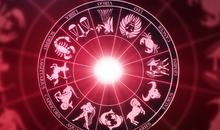
Horoscope, what do the stars have in store for you today?
2025-07-08 08:16:19
Weather forecast/ How temperatures will vary throughout the day
2025-07-08 08:02:37
Morning Post/ In 2 lines: What mattered yesterday in Albania
2025-07-08 07:48:30

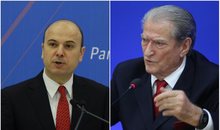



Marrëdhënia që s’është romancë, por s’është as thjesht kolegiale
2025-07-07 21:39:13
Citizen is asked to pay 2.5 million for a non-existent meter
2025-07-07 21:28:03




What is the ideal air conditioner temperature in summer?
2025-07-07 20:53:46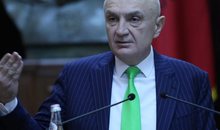
GJKKO left him in prison, Meta appeals the decision
2025-07-07 20:38:05
Where is Ronaldo after missing Diogo Jota's funeral?
2025-07-07 20:38:04

Messages from the author who killed Ilaria Sulla in Rome are revealed
2025-07-07 20:20:12
At least 91 dead in Texas floods
2025-07-07 20:12:02
Elbasan, choked by smoke, scorched by conscience
2025-07-07 19:48:16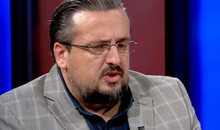

Swarm of bees attacks citizens in France, 24 people end up in hospital
2025-07-07 19:32:03
Dementia/Hearing loss may be a warning sign
2025-07-07 19:13:06
The decision for Malltez, Gjokutaj: Boomerang for SPAK and the Court
2025-07-07 19:01:08

Former Supreme Court member acquitted of asset concealment
2025-07-07 18:36:40

WIIW expert in Politiko: Brain drain is steadily weakening the Albanian economy
2025-07-07 18:11:41
Heart health is at risk from extreme heat, here's what you should be careful of
2025-07-07 18:10:18
Today Gert Bogdani would celebrate, Edlira Çepani's touching dedication
2025-07-07 17:40:45



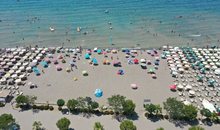
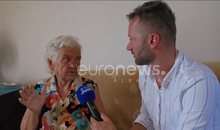

The striker severely accuses the Fenerbahce club: They tried to drug me
2025-07-07 16:21:03
A decomposed body is found in Kolonjë, initial suspicions
2025-07-07 16:03:31
Accident in Saranda, car hits motorcycle, one injured
2025-07-07 15:58:56

The most fertile age for men and women
2025-07-07 15:40:52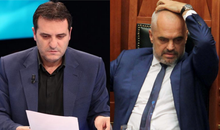
Locals, Rama candidate in 5 municipalities
2025-07-07 15:32:22
Blushi: Meta's criminal kidnapping, incomparable even to Navalny's in Russia
2025-07-07 15:20:34
Meet the iPhone 17 Pro, the main innovations in design and technology
2025-07-07 15:09:09
Why the release of Abi Malltez does not free him; much less Albania
2025-07-07 15:00:12
‘Lidhjet klienteliste’ të mjekëve mbushin recetat e pacientëve
2025-07-07 14:57:33
Poland imposes border controls with Germany and Lithuania
2025-07-07 14:48:15

Caught transporting firearms from Kosovo to Albania, young man arrested (NAME)
2025-07-07 14:37:47
Theo Hernandez flies to Saudi Arabia for medical check-ups
2025-07-07 14:26:47


Scorching heat, Greece orders mandatory work holidays
2025-07-07 13:54:25


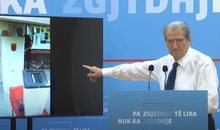

Trump expects Netanyahu to discuss Gaza ceasefire
2025-07-07 12:54:27
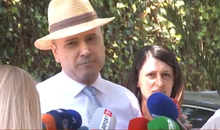
GJKKO releases Jamarbër Malltezi from house arrest
2025-07-07 12:35:02
Tourism among contrasts
2025-07-07 12:31:01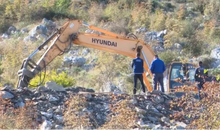
IKMT action in Theth, starts demolition of unauthorized constructions
2025-07-07 12:24:18

The Tirana-Kamëz line is destroyed by urban fire
2025-07-07 12:00:24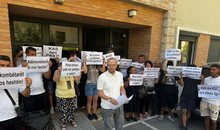
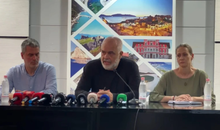

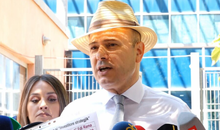

Poor direction!
2025-07-07 11:16:01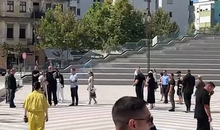


Rama to gather the country's mayors on July 9
2025-07-07 10:43:31
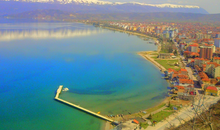
Ohrid Natural Park on the way to UNESCO's "black list"
2025-07-07 10:25:58

Registrations for the new school year begin in e-Albania
2025-07-07 09:59:09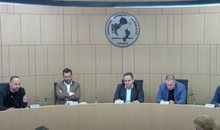
KAS decides the "fate" of the elections in four districts of the country today
2025-07-07 09:50:51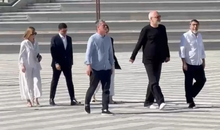
Rama does not give up on Vlora, visits the municipality again
2025-07-07 09:39:11
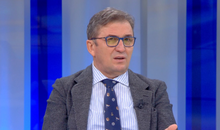

Fires in Gjirokastra, flames very close to cultural monuments
2025-07-07 09:12:49

Foreign exchange, the rate at which foreign currencies are sold and bought
2025-07-07 08:39:57

Horoscope, what do the stars have in store for you today?
2025-07-07 08:14:17
The week starts with scorching temperatures, the thermometer reaches 37°C
2025-07-07 07:58:36
Morning Post/ In 2 lines: What mattered yesterday in Albania
2025-07-07 07:45:15

